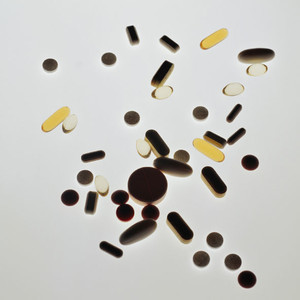Italy has the lowest generics market share by volume in Europe (less than 20%), coming just below Portugal and Spain. While in Northern European countries the introduction of generics took place between the 1970s and 1980s, in Italy the concept of generics was only clarified in 1996 (law n. 425) and physicians were only required to inform patients from 2012 [1].
To date, although the Italian policy for generics promotion by physicians and pharmacists is widespread, national data continue to highlight the limited success of generics in Italy, and no data exist about real-life prescription and level of awareness of generic drugs. In light of this, researchers from Genoa, Italy carried out a study to analyse what demographic, social, economic and cultural factors contributed to the level of awareness of generics and their effective use in the Liguria Region, where generics use is higher than the Italian average [2].
A population-survey was carried out using a structured questionnaire, assembled from previous research studies. The survey was administered to eight general practice outpatient clinics located in different districts of Genoa (Liguria), Italy. The city was divided into three areas (east, west and centre), reflecting the different socio-economic status and demographic characteristics of citizens. A single interviewer, formally trained in medicine, administered the questionnaires between March and October 2014. Two separate surveys were performed, the first on patients interviewed in a private room of the clinic during regular opening hours and the second on general practitioners working in the same outpatient clinics and being unaware of the results of the first survey.
Multivariate logistic modelling was used to study the relationship between awareness/use of generics and characteristics of subjects.
Out of a total of 2,134 patients asked to participate, 2,000 were effectively surveyed, of which 1,896 (95%) were informed about the existence of generics.
Factors independently and significantly associated with the awareness of generics were female sex (OR = 2.2, 95%; CI:1.4−3.6), age > 35 years old (OR > 6.0), level of education (OR > 4.0) and living in the west of the city (OR = 1.9 vs the centre).
Only 1,115 (59%) patients of those who said they were aware of generics also used them. Users were significantly younger (OR = 3.1, 18−35 years old vs > 65 years old), with a higher level of education (high school/university degree vs no title/elementary/secondary school: OR = 1.7). They were also aware of the lower cost of generics compared to brand-name drugs and this education had mainly come from pharmacists and physicians. The only factor significantly associated with non-use of generics was the mistrust of parents and friends (OR = 0.34, 95%; CI:0.27−0.41).
Although most subjects (95%) were aware of the existence of generics, about 40% still did not use them. Doubts about their efficacy seemed to be mainly driven by the idea that cheaper drugs leads to lower product quality, in terms of efficacy, safety and tolerability.
In light of evidence on the advantages of generics, new educational policies on these drugs are needed to assure both patients and general practitioners of their effectiveness. Healthcare professionals should be actively involved in campaigns aimed to improve patients’ awareness of the safety and efficacy of generics and, perhaps more importantly, on their sustainability for the public national healthcare system. Increased use of generics would free resources to invest in originator pharmaceuticals, thus satisfying patients who often complain about the disparity of access to originator drugs.
Conflict of interest
The authors of the research paper [2] declared that there was no conflict of interest.
Abstracted by Associate Professor Francesca Mattioli, MD, Associate Professor of Pharmacology, Clinical Pharmacology Specialist, Clinical Pharmacology and Toxicology Unit, Department of Internal Medicine, University of Genoa, Italy.
Editor’s comment
Readers interested to learn more on the generics scenarios in Italy are invited to visit www.gabi-journal.net to view the following manuscripts published in GaBI Journal:
The generic medicines system in Italy: scenarios for sustainable growth
GaBI Journal is indexed in Embase, Scopus, Thomson Reuters’ ESCI, and more.
Readers interested in contributing a research or review paper to GaBI Journal – an independent, peer reviewed academic journal – please send us your submission here.
Related article
Biosimilars use in Italy increasing
References
1. Dylst P, Vulto A, Simoens S. Analysis of the Italian generic medicines retail market: recommendations to enhance long-term sustainability. Expert Rev Pharmacoecon Outcomes Res. 2015;15(1):33-42.
2. Mattioli F, Siri G, Castelli F, Puntoni M, Zuccoli ML, Stimamiglio A, Martelli A. Approval rating and opinion of outpatients and general practitioners toward generic drugs: a questionnaire-based real-world study. Patient Prefer Adherence. 2017;11:1423-33.
Permission granted to reproduce for personal and non-commercial use only. All other reproduction, copy or reprinting of all or part of any ‘Content’ found on this website is strictly prohibited without the prior consent of the publisher. Contact the publisher to obtain permission before redistributing.
Copyright – Unless otherwise stated all contents of this website are © 2018 Pro Pharma Communications International. All Rights Reserved.








 0
0











Post your comment